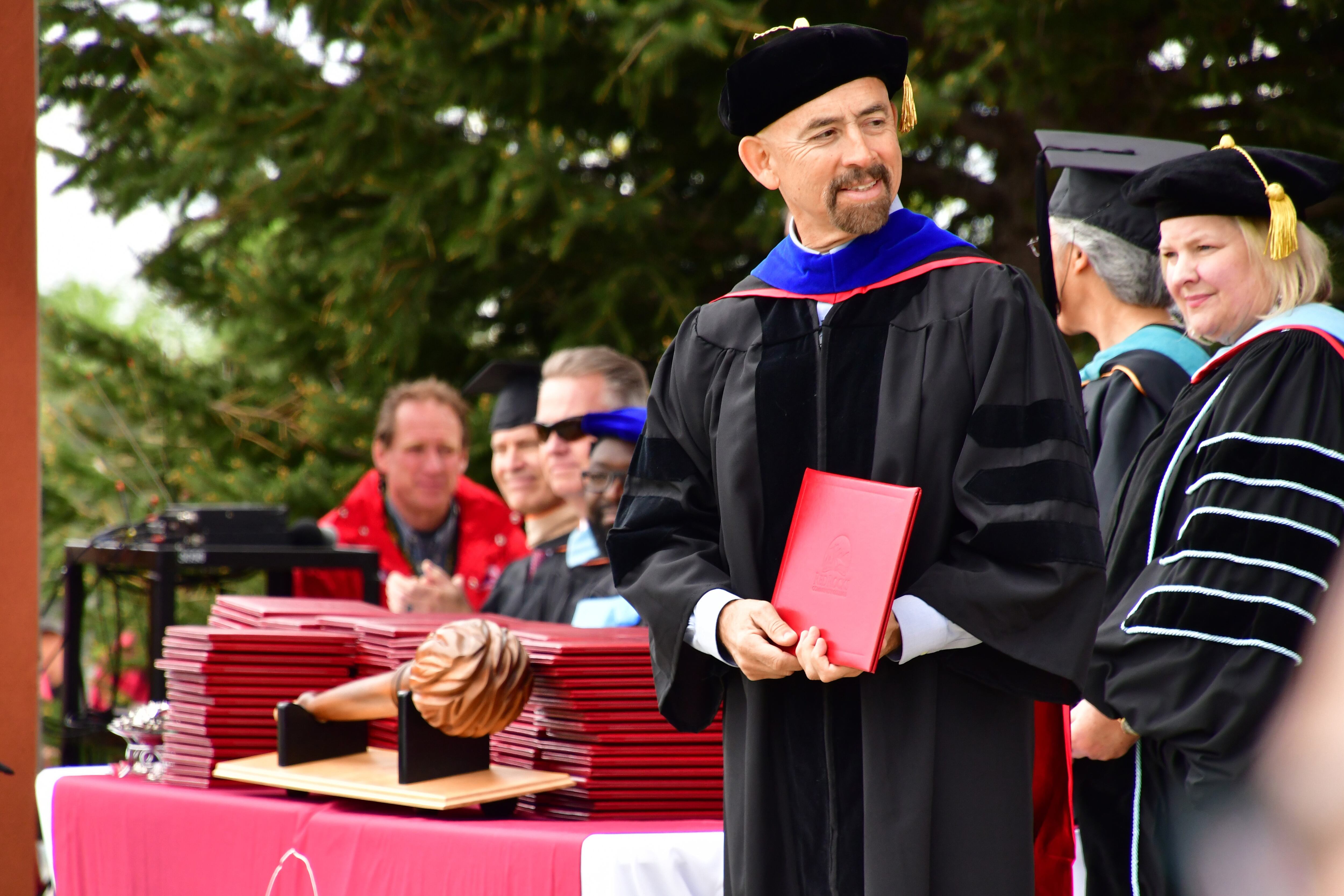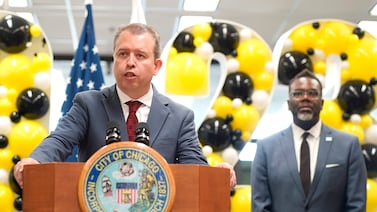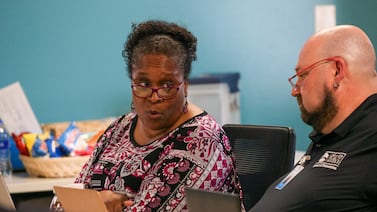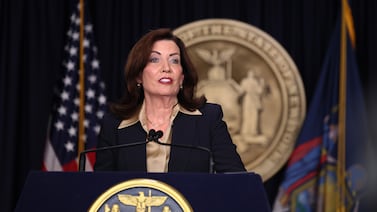Sign up for our free monthly newsletter Beyond High School to get the latest news about higher education in Colorado.
Joe Garcia’s favorite moments during his 25 years as a higher education leader in Colorado have been the graduation ceremonies.
“I remember one time at Pikes Peak (Community College) watching a student come across who was getting her nursing degree at the same time as her father,” he said. “It’s just inspirational. It’s fun.”
Garcia, who is the Colorado Community College System chancellor, announced last week that he will retire June 30. During his career, he has led Pikes Peak Community College, Colorado State University of Pueblo, the Colorado Department of Higher Education, and the community college system, the largest college system in the state.
Garcia, 67, also served as lieutenant governor under former Gov. John Hickenlooper and has become one of the most influential leaders in Colorado higher education and politics. At one point, he turned down a position in former President Barack Obama’s administration.
But leading the community college system has been the job in which he’s felt most effective.
“You know, I considered at different times and at the urging of different people, running for Congress, running for governor, applying for other higher ed positions,” Garcia said, “but this is where my skillset and personality really fit.”
The State Board of Community Colleges and Occupational Education plans to appoint Executive Vice Chancellor and Chief Strategy Officer Diane Duffy as interim chancellor effective July 1. The board will conduct a national search for Garcia’s replacement.
Garcia said he hopes his retirement will help usher in a new generation of higher education leaders who can tackle the pressing challenges that students face, including getting them to and through college and helping them acquire skills that connect them to jobs.
And he said he’s grateful for what his own higher education has given him. Before his educational career, he said he worked as a garbage man and as a janitor in college.
“Higher education enabled me to have a life I could not have imagined as a youngster. And that’s what higher education needs to do. It needs to excite people to pursue lives that will be rewarding, pursue jobs that will be challenging,” he said. “It needs to help people challenge themselves and accomplish things they didn’t think they were capable of accomplishing.”
Here’s what Garcia had to say about why he’s retiring, his accomplishments during his tenure, and the challenges and future of the college system.
His retirement decision
Garcia will turn 68 next month, and said it’s time.
“I am not getting any younger, and I am not getting any healthier,” he said. “And I don’t want to be seen as some of our recent political leaders who have been seen as hanging on for too long and not performing at their best and not giving opportunities to those who would bring more vigor and energy and creativity.”
Garcia said he plans to take several cross-country motorcycle trips, and do more traveling, biking, and snowboarding. He’s focused on the physically active aspects of his life, he said.
“And if I find I can’t really do it, then I’ll maybe teach a class or two,” he said.
His greatest accomplishments as chancellor
He is proudest of two of his achievements.
He helped create a more collaborative system that works for all students, including a 2022 initiative that lets Colorado’s seven rural community colleges share programs and services so students — no matter where they live — get a wider set of educational opportunities.
“In the past, people really closely guarded what we called their service areas, and they did not want any college coming in and offering a course to someone who lived in an area that was served by another college,” he said. “But what that did was really limited students in rural communities, because rural schools couldn’t offer the wide range of programs that large urban schools could.”
Second, he helped make it easier for students to transfer from the community college system to a four-year college by aligning academic requirements and classwork.
“There are far more guarantees about (credit) transferability and a greater transparency around which courses will transfer to which institutions,” he said. “And then we have more partnerships with universities.”
The biggest challenges he sees facing the college system
State funding and federal changes have made serving students difficult, he said.
Students who don’t go to college because of the cost put their futures in jeopardy, he said.
“It’s no secret that Colorado does not invest a lot of money in higher education compared to other states. As a result, tuition rates at both community colleges and our universities are higher than they are on average in most other states,” Garcia said. “That’s not good for students. It’s not good for our state economy.”
He also said recent changes by the federal government to federal grants, such as axing programs that support low-income students and Hispanic students, also could make it harder for the state to get students from differing backgrounds to college. Many of the administration’s directives are being challenged in court, but it creates uncertainty for college leaders in their goal to help all students navigate individual hurdles.
He said the younger generation of workers will be more diverse than previous generations because of the state’s demographics, and that the college system has responded to meet the needs of its communities. More jobs than ever require an education beyond a high school diploma, he said.
“Our future workforce is going to be more diverse, but it also needs to be better educated than our previous workforce,” he said. “A huge percentage of the students coming out of our high schools are people of color. If we want them to fill those jobs, we’ve got to make sure they’re well prepared, and that means we have to create a system that serves them effectively.”
Jason Gonzales is a reporter covering higher education and the Colorado legislature. Chalkbeat Colorado partners with Open Campus on higher education coverage. Contact Jason at jgonzales@chalkbeat.org.







